Life can easily become too much for us to handle all at once. Personally, there have been days when the state of my skin feels like a huge problem and that is the least of my concerns. If after going through a particularly tough work week and you look into the mirror and your skin looks angry or exhausted, you are not imagining it.
There is a strong correlation between our mental health and the state of our skin. Our mental health and our skin are intertwined.
In today’s post, we’ll talk about how balance is the ultimate ruler in order to fix some of the inner battles you’re facing on a day to day basis and mindfully, piggyback your way towards feeling better both emotionally and physically.
The Hidden Link Between Your Mind and Skin
How Stress Affects Skin
Symptoms of Anxiety and Stress are not restricted to just the mind, they have an immense effect on the body as well and some of the first symptoms tend to show on our skin.
Whenever there is an increase in stress levels, there will always be an increase in the body’s production of cortisol. For those who do not know, cortisol is the proverbial stress hormone. When an excessive amount of cortisol is released, skin issues such as slow-healing wounds or inflammation will follow. Seeing issues such as acne, redness, or dry patches is a signal that your body is trying to communicate during heavy times.
Stress can impact the skin’s barrier which helps to keep moisture in and irritants out. Stress can lead to increased sensitivty which causes itchiness, hives, or flushing. Some people may experience triggers for eczema and psoriasis, while others experience their skin being more sensitized to products.
Poor Sleep and Skin Problems
Going to bed with a full to-do dinner due to anxiety and overthinking results in stagnation of skin cells. During deep sleep, the body undergoes significant cellular repair and renewal processes. Lack of sleep restricts the skin from regenerating cells leading to dull skin and reducing cell turnover.
Depressed individuals lose motivation for mundane activities like eating or washing which stacks up and leads them further down the spiral. Their distraction becomes staying awake for too long scrolling through devices which makes them forget to drink water, leading to immeasurable fatigue. Skin begins to mirror the fatigue one experiences in everyday life.
Along with not feeling great, the skin may look slack and lack elasticity. Lines become more prominent serving as an additional reminder that the body is fatigued, indicating one’s actual wear and tear.
When Skin Issues Make You Feel Worse Mentally
The Emotional Toll of Skin Conditions
Here’s the hard part. When your skin begins to react to stress, it does not stop there. Now, you are trapped in a cycle. Your breakouts or flare-ups worsen how you view yourself. You don’t feel like stepping outside. You avoid any interaction. You feel inadequate.
These flaws—acne, eczema, rosacea—are not just skin-deep. They alter our emotions. They hinder our self-esteem. And when we feel unwell, we tend to take even less care of ourselves.
There have been times when simply having one pimple felt catastrophic to a certain extent. Not because of its size, but because of the sense of control it stripped away from me. The reality of not being able to ‘fix’ it is far more painful than I expected. If you have ever sobbed over a breakout, rest assured, you are not in this alone.
Real Problems, Real Solutions
Simplifying Skincare Under Stress
If stress is climbing and your skin has started to revolve around your body, begin by easing the skincare routine. You do not require 10 steps. A mild soap and a light moisturizer should suffice. Step away from using harsh products—no scrubs, no drying toners.
Supplement with something that has calming ingredients such as a face mist or calming mask. Aim for products enriched with aloe, niacinamide, or panthenol. These boast powerful redensifying qualities and help support the barrier of your skin.
When You’re Too Tired for Skincare
Feel free to skip your skincare routine when you are extremely tired. You shouldn’t feel guilty about it. Just place your products beside your bed. If you do not want to go to the sink, use a micellar water. Apply a moisturizer that does not require rinsing off.
Make it nurturing. Skincare should be soothing, not an additional task to check off. View it as brushing your teeth; a small, effortless action that gives you life and enhances your feeling of self.
Creating Rituals that Calm Your Mind
Combine your skincare routine with something uplifting. Personally, it was music and sunlight. I would arrange my skincare as a ritual, sit by the window, play a calming playlist, and gaze at everything outside for some sunshine.
Try aromatherapy. Light a lavender scented candle. Use a facial roller from the fridge. While these changes will not solve all troubles, they can uplift you, and sometimes, that shift is all you need to go on.
Building a Balanced Routine That Feels Like You
For Your Mind
Start with the basics. Ensure you optimally sleep, alternatively, plopping onto a couch counts as sleep too! Remember to drink water and rest whenever you wish to. Throughout the day take time and check in with yourself. Breathe during your pause and feel your heart calm you down.
Physical activity like taking a walk or even light stretching can improve one’s mood and circulation. This positively impacts mental clarity and skin health.
You should try being kinder to yourself. Why not be gentle instead, when so much energy is used for critcizzming oneself?
For Your Skin
Let’s break it down:
- A gentle cleanser
- A light, non-greasy moisturizer
- Sunscreen (yes, even during cloudy weather)
You can add:
- A serum with Vitamin C for a subtle glow.
- A hydrating toner for extra moisture.
- A hydrating face mask for your weekly self-love/ self-care day.
Steer clear from an excessive amount of active ingredients. Keeping your routine simple will do your skin wonders.
Adding Joy to the Routine
If a product makes you happy in a certain way or way, apply it. As long as it helps you in de-stressing, that touch of joy is beneficial to the healing process.
A nutrient-rich moisturizer may be a favorite because it reminds one of their grandmother, while a minty deodorizing facewash makes one feel alive. It’s all about allowing yourself to shine, even with the smallest of moments.
How Food and Feelings Work Together
What You Eat Affects How You Feel and Look
Do you feel down, angry or irritable after binging on unnutritious foods? I know I do, and it shows on my skin. Starting out isn’t about dieting, it’s about nourishing the body.
Consumption of sugar, processed oils, and dairy products may lead to breakouts or flare-ups of certain health issues for some individuals. Stress signals are sent all over the body when the gut is irritated, which includes the organism’s primary defensive organ, the skin.
Nutrients That Help
Nutrients to the Rescue:
Make it a point to consume more of the following: – Omega 3s -found in salmon and flax seeds;
- Vitamin C- found in oranges and berries;
- Zinc- available in nuts and legumes;
- Vitamin D- available in eggs, sunlight, and supplements if needed.
These nutrients support motivation and skin. They aid in inflammation reduction, improve collagen synthesis, and stablilize energy levels.
Hydration Matters
Everything is straightforward; drink water. Dehydration, flakiness, dull skin, lack of concentration, and inability to regulate mood are streamlined issues stemming from not drinking enough water. Carry a bottle and take occasional sips. Your skin will have no option but to look fresh and plump. Avoiding dehydration on a more serious note is the easiest form of self-dedication.
Remember the basics when improving your skin’s appearance; stay hydrated without any extra effort, and thrashing through the routines will turn your skin into a canvas. Providing attention to your face and assisting it in being clean is one of the best forms of self-care.
Emotional Skincare: What Really Helps
Skincare as a Mental Pause
I turn on music. I light a candle, then I go slowly, focusing on how my hands feel on my face. It’s not about solving something; it’s about paying attention.
You can even talk to yourself in the mirror and say something nice. “I’m doing my best.” “I’m still here.” Simple truths can bring peace to fearsome thoughts.
Create a Routine That Feels Safe and Soothing
In performing self-care, I slow down and light a candle. I then cue soothing music. I focus on how my face feels in my hands. It is not about fixing something; it is about noticing it.
You may also do a kind self-talk in the mirror. It may sound funny, but it is effective: “I’m doing my best,” or “I’m still here.” Simple statements help ease overwhelming fears.
Adjusting Based on How You Feel
The same thing does not need to be done every day. Some days may call for more moisturization while others demand a quieter environment.
- If anxious: avoid fragrant products
- If feeling low: keep products handy
- If burned out: do less, not more
Skincare is treating the face, but also the feelings evoked during the process.
How You Know You’re Getting Better
Small Signs of Progress
Change is subtle, quiet, and takes time. As you embrace the journey, little things become noticeable. Like not breaking out as often, less fright to face the mirror, and most importantly, slowly feeling like oneself.
Perhaps you find more reasons to smile. Perhaps your sleep improves. Perhaps skincare routines become a pleasurable event instead of a dreaded chore.
The True Goal is Balance
No, the goal is not perfect skin or boundless energy. The goal is balance. Balance leads to peace—enough strength to confront situations and enough softness to relax.
Regardless of the day, balance will not be achieved continuously—but that is ok. In fact, you are already doing much better than you perceive.
When to Ask for Help
Knowing When It’s Too Much to Handle Alone
If taking a toll on your mental health feels difficult to manage independently—do speak to someone. A friend, a medical professional, or a therapist. Seeking help does not illustrate weakness; rather, it is an honest mark of wisdom.
If there is a grace barrier when it comes to getting out of bed, or an embarrassment that is censuring skin struggles, then it is absolutely fine to seek support.
Reach Out If Your Skin Is Affecting Your Mood
Do not procrastinate if struggling skin becomes an unending cycle or leads to an unchanging frequency of gloomy days. There is absolutely no need to procrastinate when help is easily available.
Professionals do not have to be figured out alone—that is the obvious fact. However, waiting is not the best option. Skin anxiety therapists and dermatologists that relate and connect mental health to flare-ups are a dime a dozen.
My Opinion
You and I? We’re not striving for perfection. We are opting for care instead. That is the difference. Your skin is a fraction of your being, not the entirety. You possess more than merely your outward appearance.
Don’t rush. Exercise kindness towards your face and heart. And don’t forget, achieving balance isn’t about doing every single thing correctly. It’s figuring what feels right for you.
Every care, no matter how small, matters. Every instance of washing your face gently, each glass of water consumed, every decision to rest – cumulatively constructs something. Something steadfast. Something tender. Something genuine.
And that, indeed, is the face of healing.
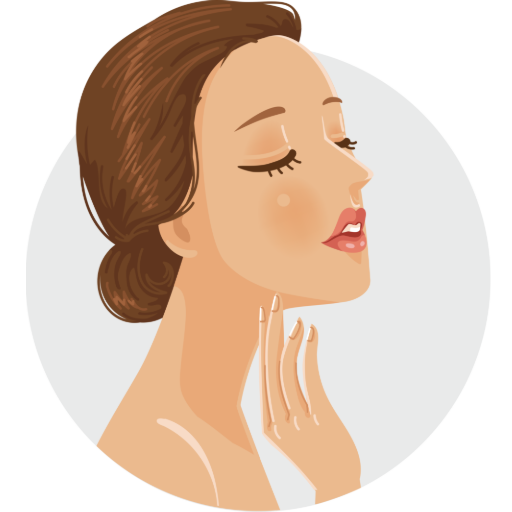
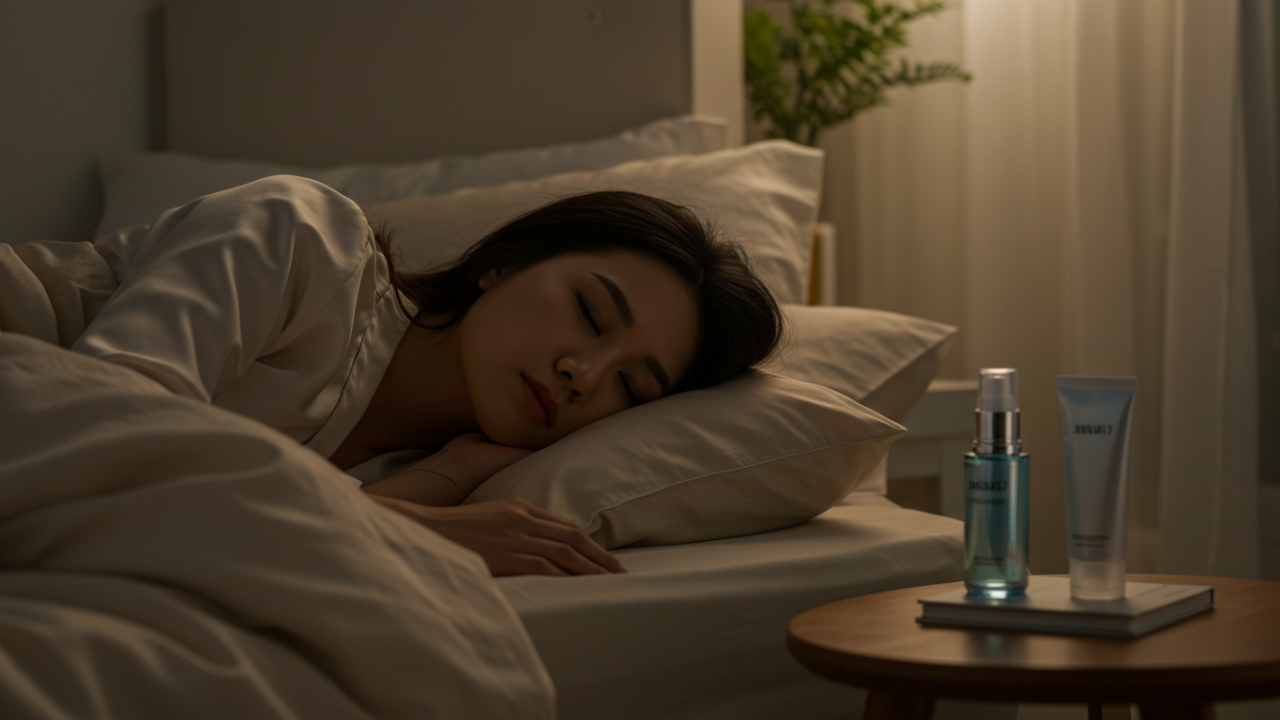
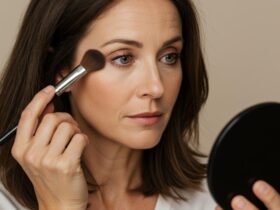

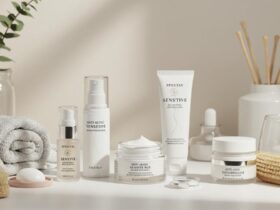
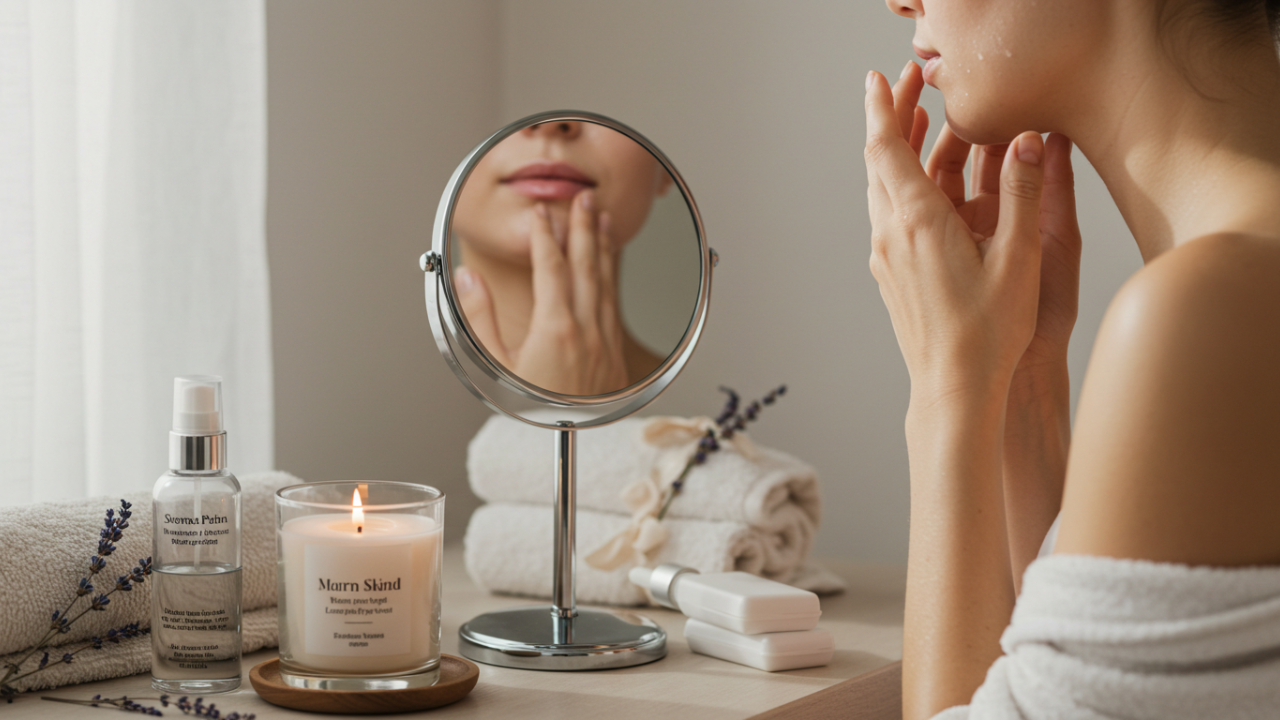
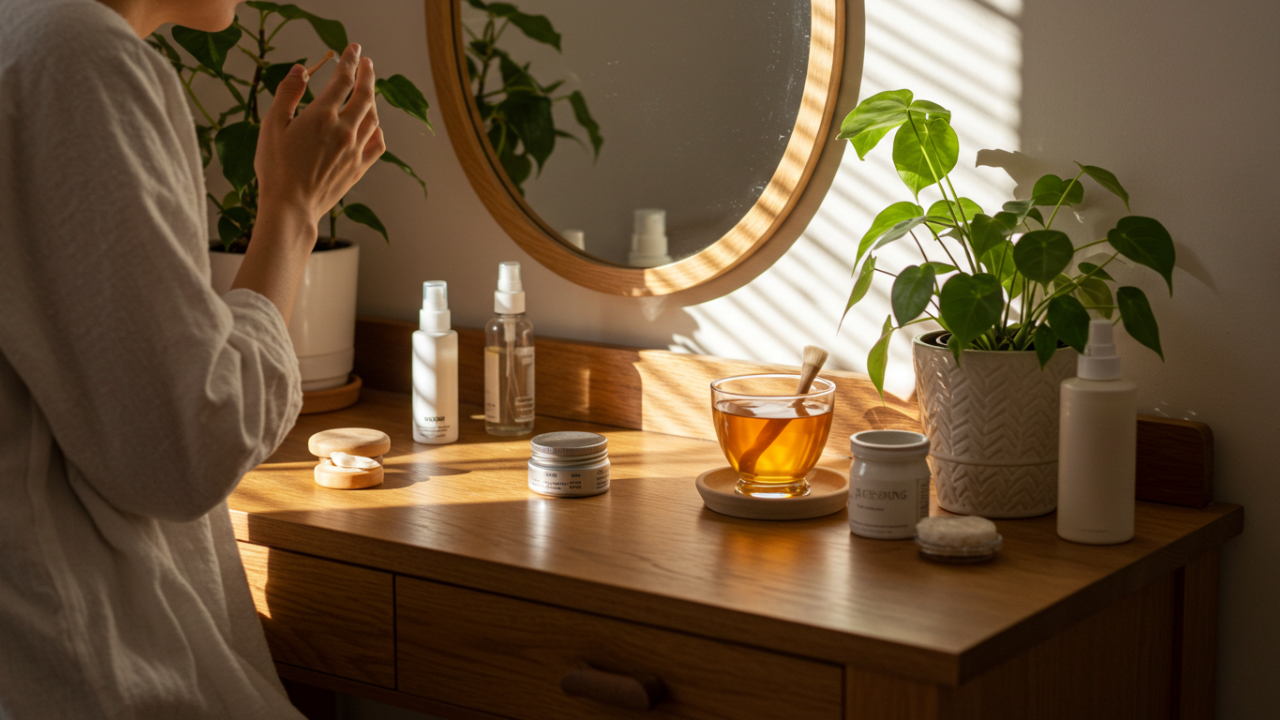
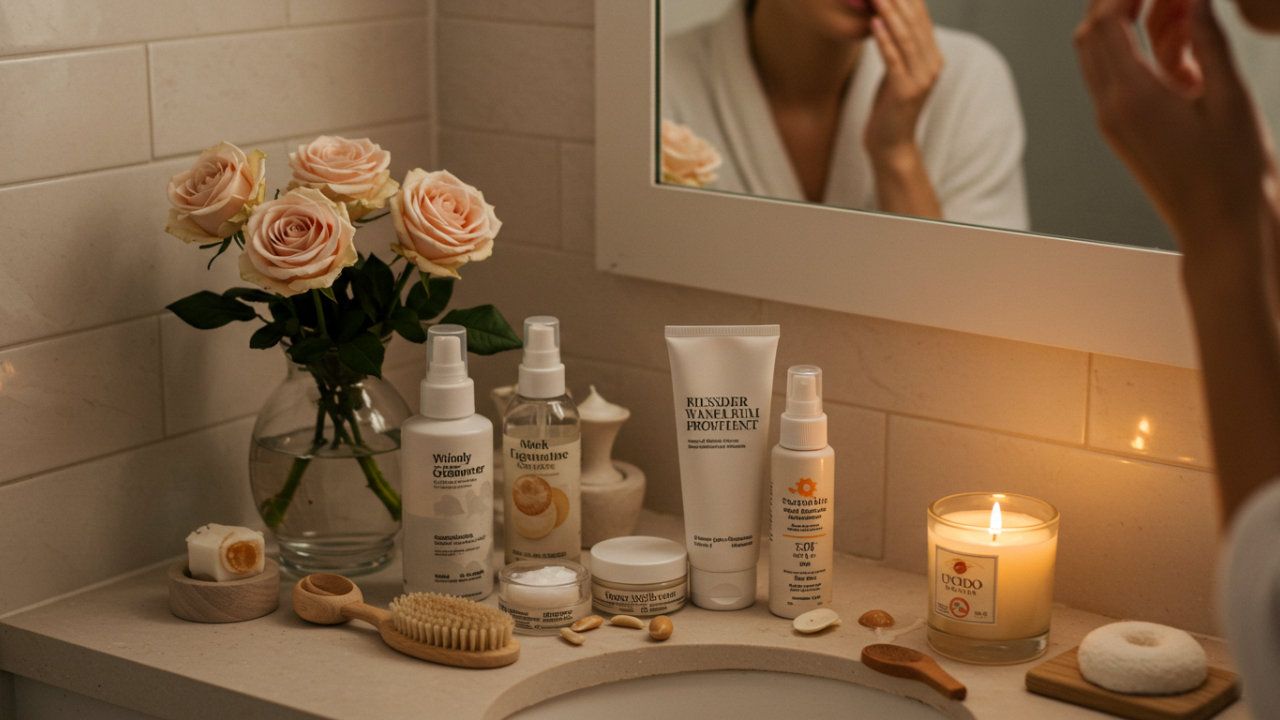

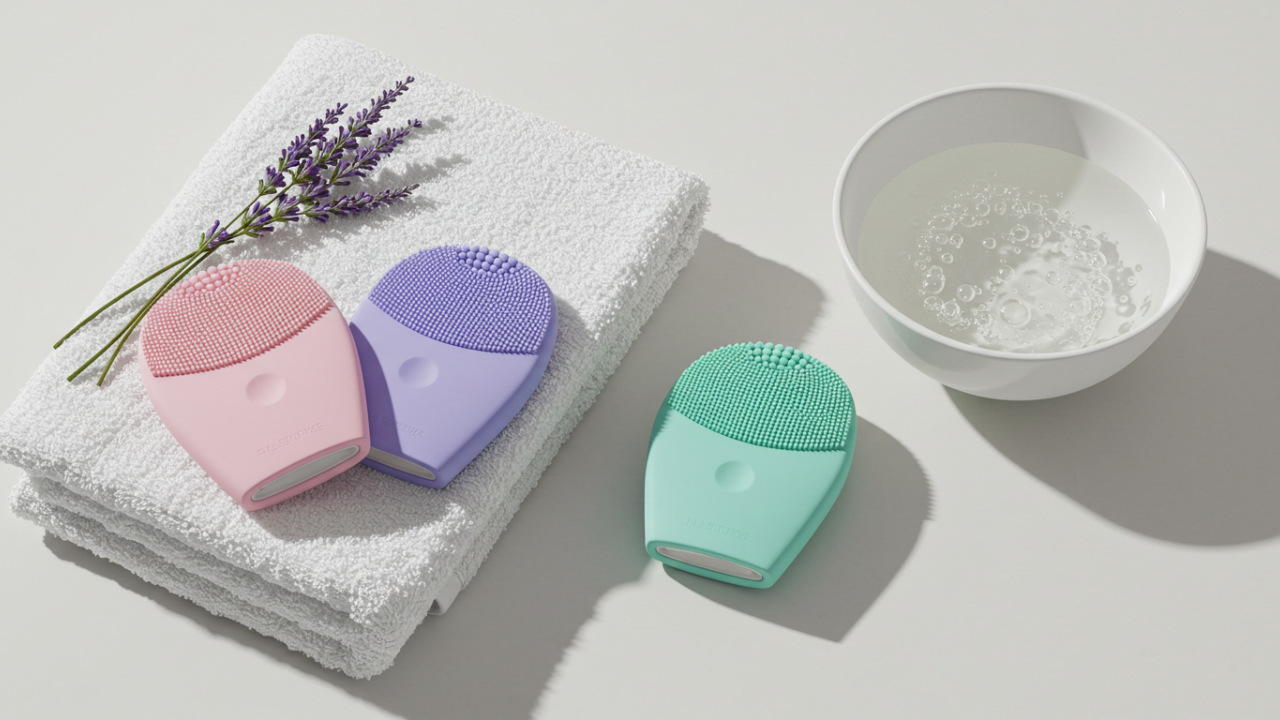
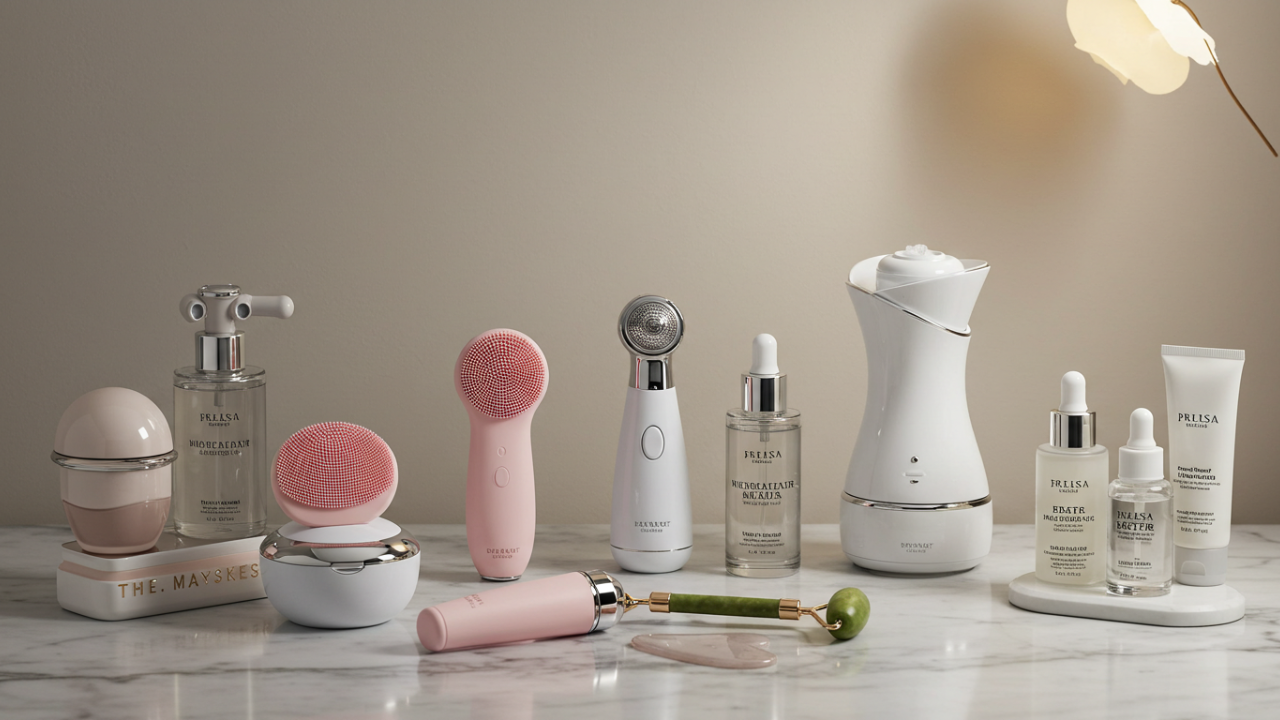
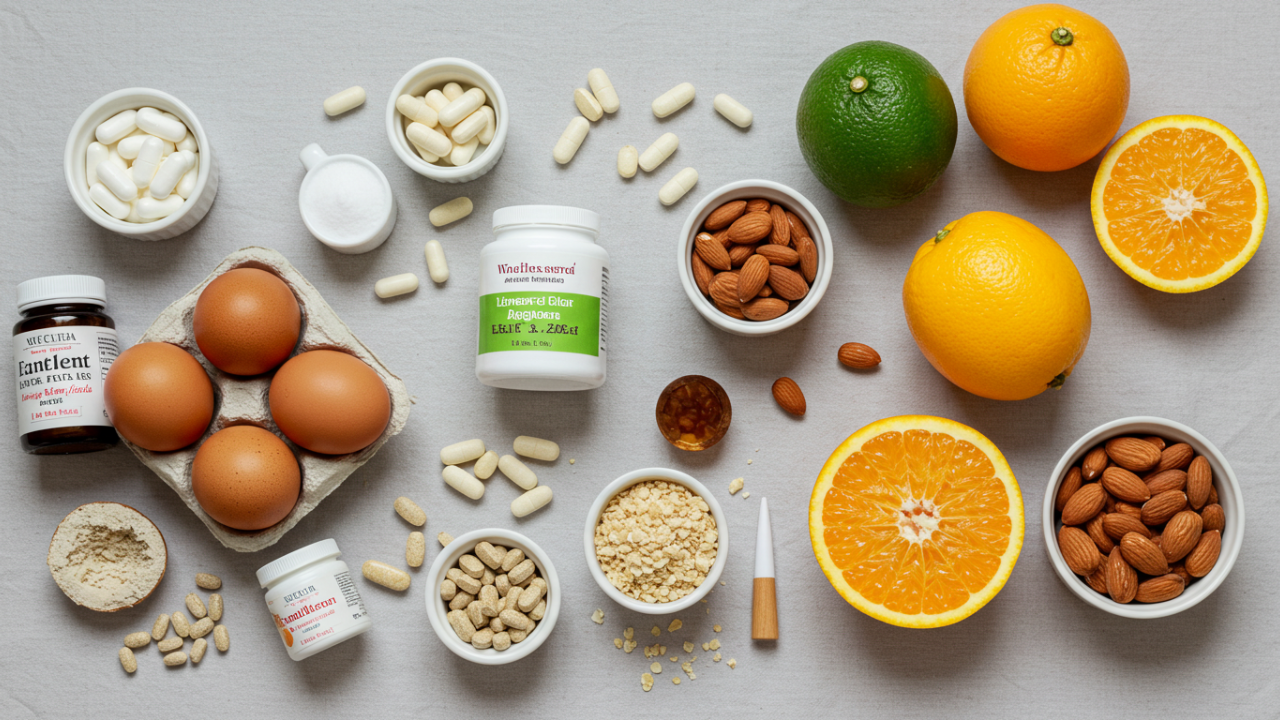

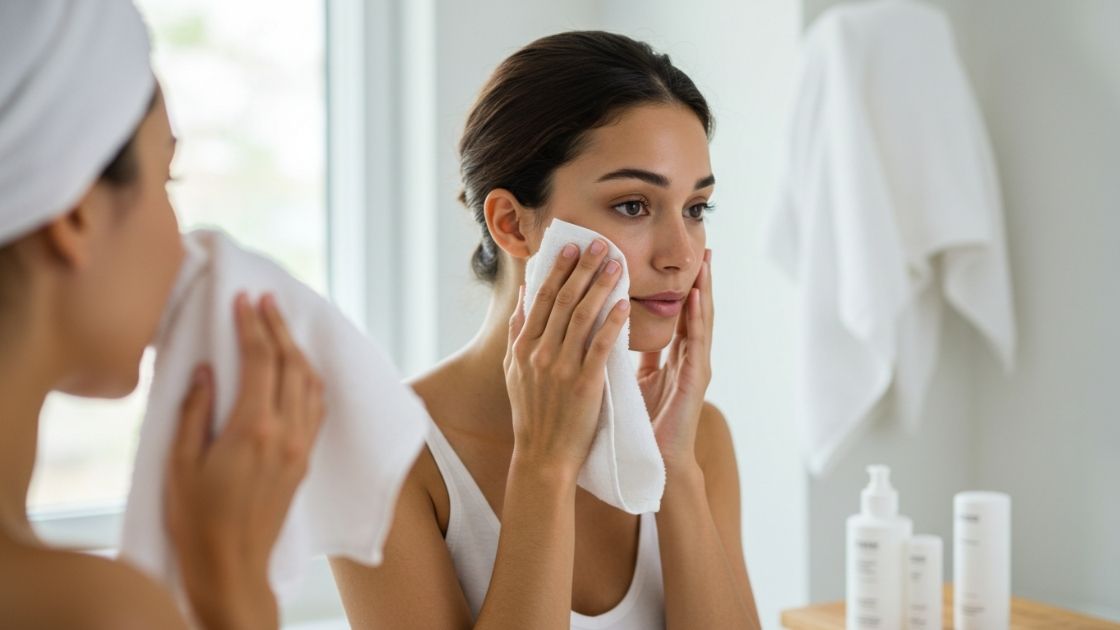
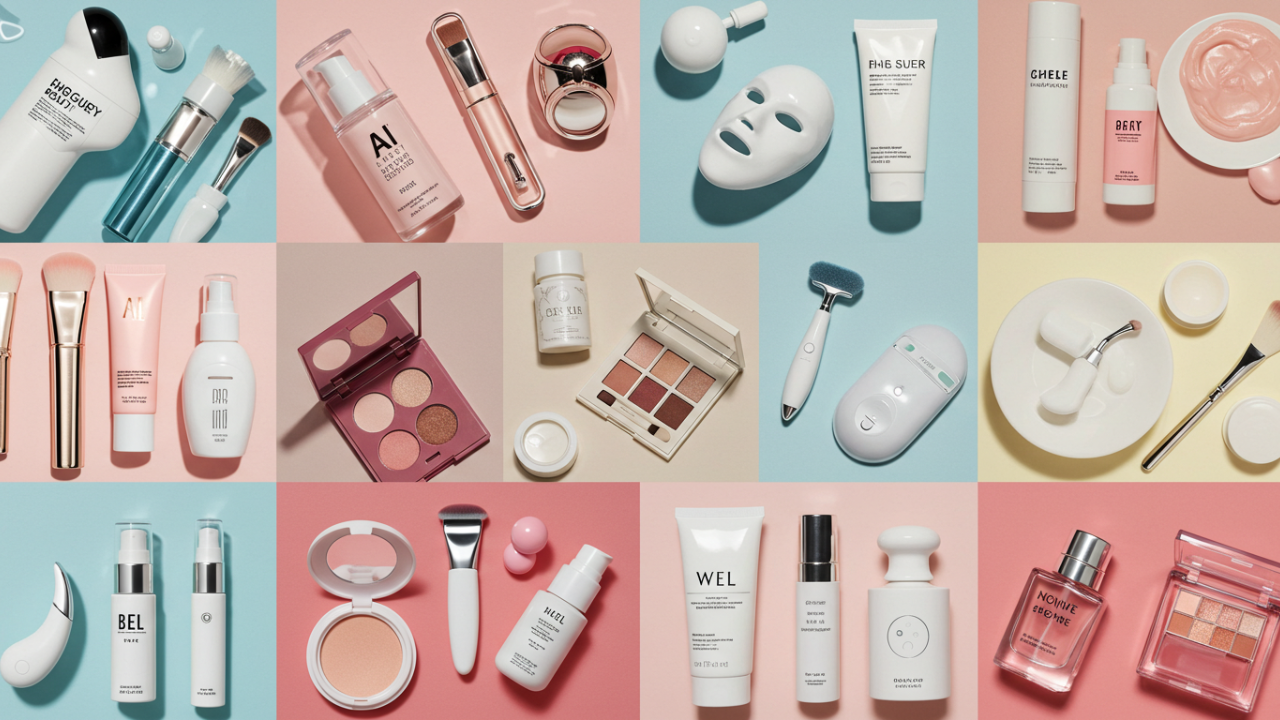

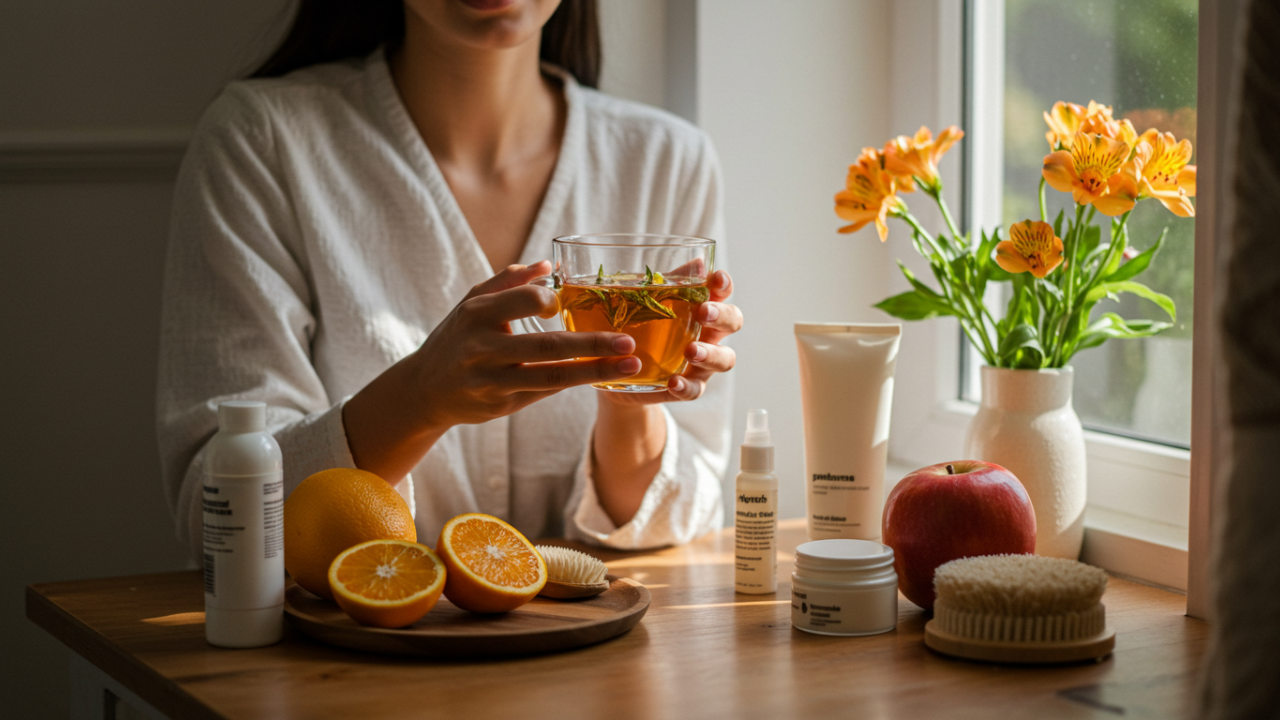
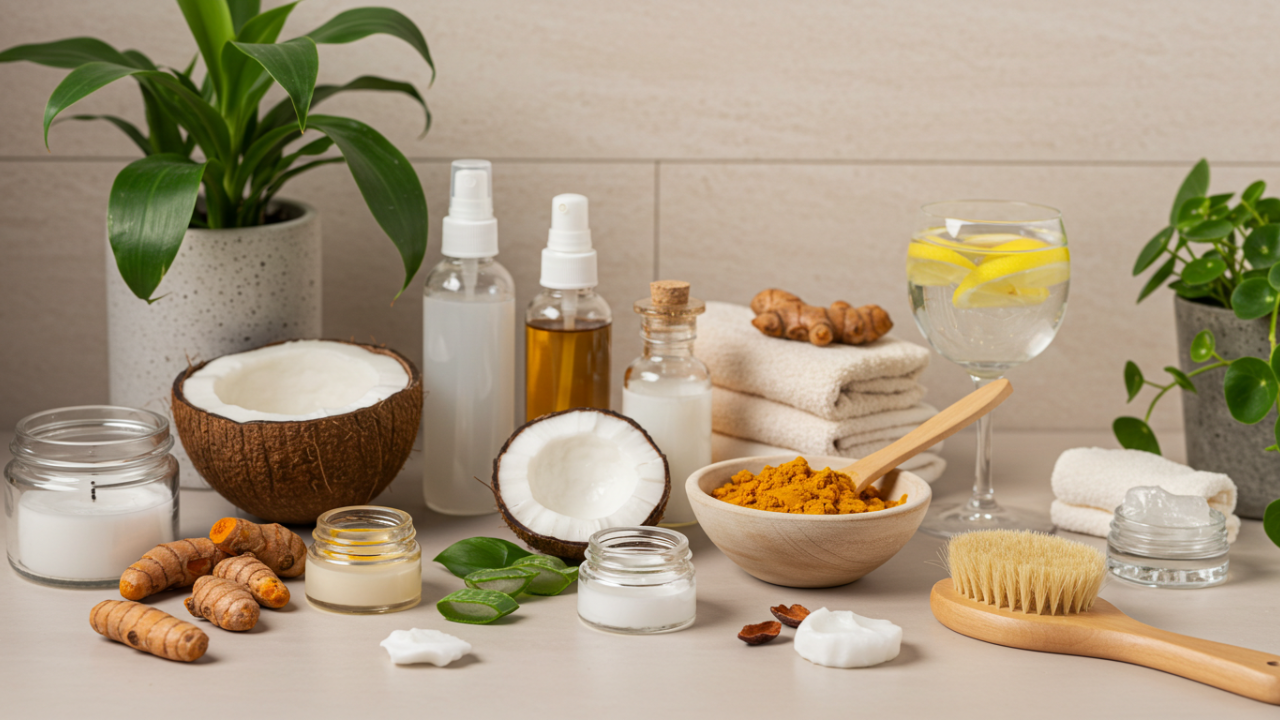
Leave a Reply
View Comments